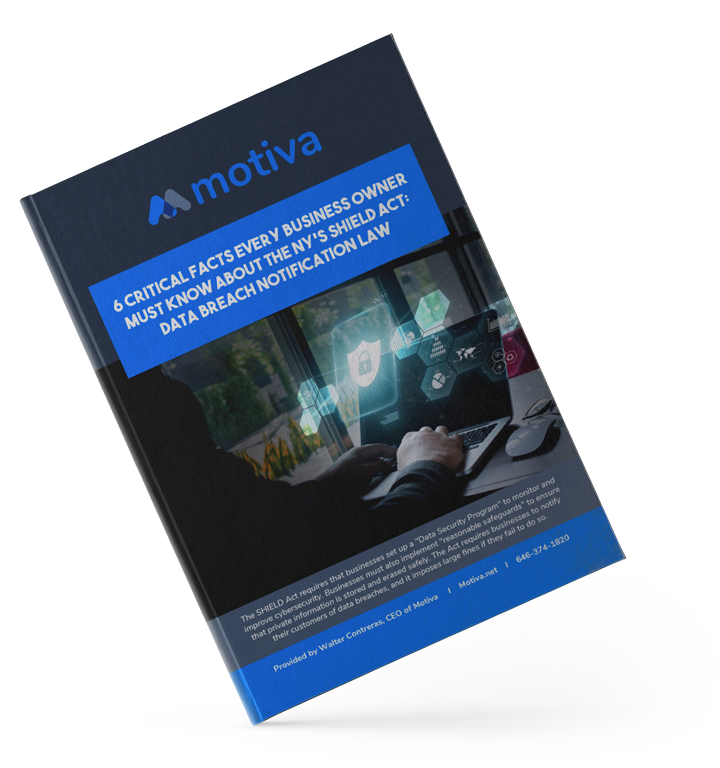Attention all Businesses who Collect Private Information on New York residents:
Is your Company in Compliance with The NY State Cybersecurity Regulations?
One of the biggest threats to your business these days is your compliance with the NY Stop Hacks and Improve Electronic Data Security (SHIELD Act) - or lack there of!
The SHIELD Act requires businesses to develop, implement and maintain “reasonable safeguards to protect the security, confidentiality and integrity” of New York residents’ data.

